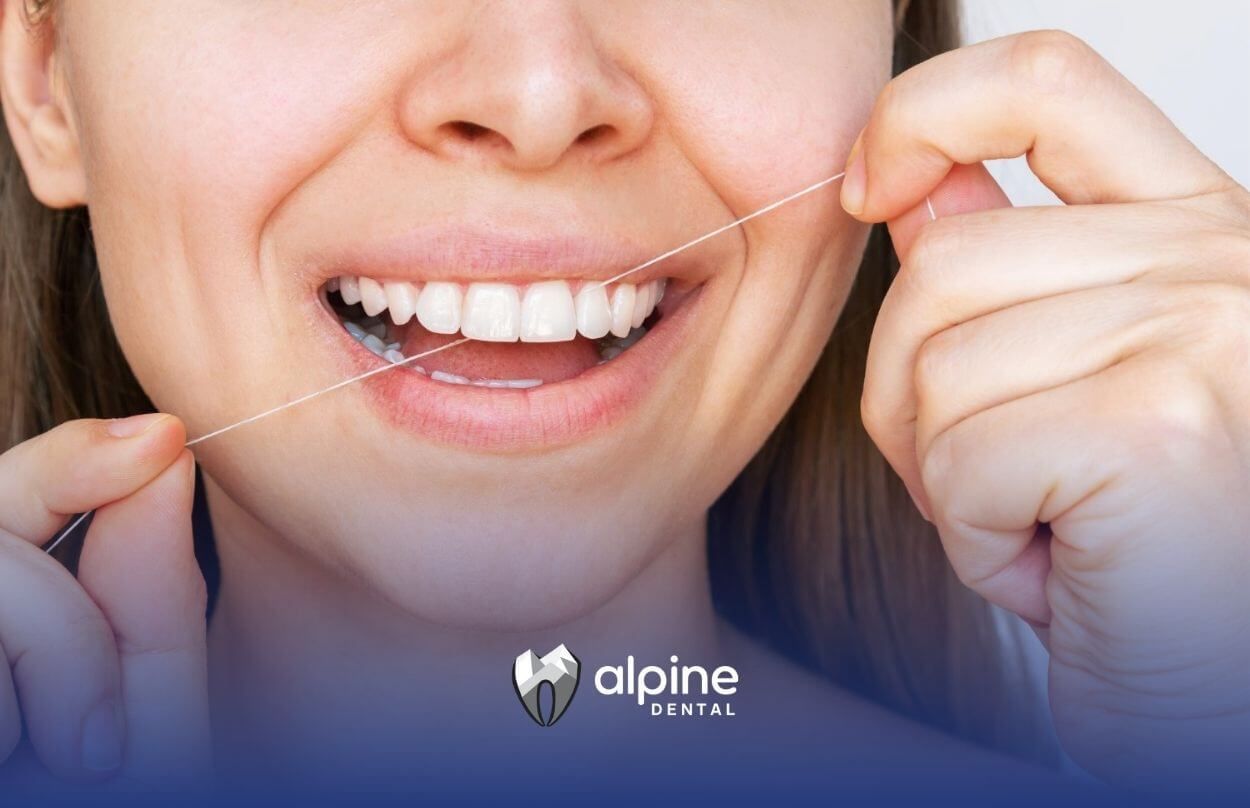Soothe Swollen Gums with These Powerful Treatment Methods
Key Highlights
- Swollen gums often arise from common causes such as gum disease, hormonal changes, poor oral hygiene, or nutritional deficiencies.
- Symptoms typically include redness, gum pain, tenderness, bleeding, bad breath, and gum recession.
- At-home remedies such as saltwater rinses, aloe vera gels, turmeric paste, and cold compresses can offer relief.
- Persistent swelling or severe infections may require a dentist's evaluation and professional treatment plans.
- Preventive measures, including good oral hygiene and maintaining a balanced diet, are essential for long-term healthy gums.
- Answers to FAQs on gum inflammation provide clarity on treatment duration, foods to avoid, and the role of stress in gum swelling.
Have you ever woken up with swollen gums, unsure of what’s causing the discomfort? It's something that can happen to anyone, whether you’re due for a cleaning or you’ve recently missed a day or two of flossing.
I remember a patient of mine, Dina, who came in with swollen gums after a stressful week. She had been too busy with work and had neglected her usual brushing routine.
Within just a couple of days, her gums were red, sore, and tender. We were able to help her with a combination of at-home care and professional treatment, and her gums healed quickly.
If you’re dealing with swollen gums, this blog will help you identify the cause and find solutions that work for you.
Common Causes of Swollen Gums
Swollen gums are your body’s way of signaling irritation or infection. In my practice, the most common causes of gum swelling include poor oral hygiene, gum disease (like gingivitis or periodontitis), and infections.
Other factors, such as food particles lodged in the gum line, pregnancy-related hormonal changes, or poorly fitted dental appliances, can also trigger swelling.
It’s crucial to identify the cause early on. Taking action quickly—whether improving your oral hygiene or seeing your dentist—can help prevent further complications.
Poor Oral Hygiene Habits
If you’re not brushing and flossing properly, food particles and plaque build up along the gum line, leading to gum irritation. Over time, this plaque hardens into tartar, which allows bacteria to thrive. In my experience, this is a major cause of gum problems.
Even if you brush regularly, you might be doing more harm than good if you’re brushing too aggressively or skipping flossing. These mistakes leave plaque and food debris behind, exacerbating gum irritation and swelling.
To help combat this, try adopting a gentler approach to brushing. Use a soft-bristled toothbrush and focus on short, gentle strokes along your gum line. Floss daily to remove trapped food particles between your teeth. You can also use mouthwash to reduce bacteria and keep your gums healthy.
Gum Disease: Gingivitis and Periodontitis
Gum disease often begins as gingivitis—a mild form of gum disease causing redness, swelling, and bleeding in the gums. If not treated, gingivitis can develop into periodontitis, a much more severe condition that can lead to tooth loss.
In my practice, I often recommend home remedies to relieve discomfort caused by gingivitis, such as saltwater rinses or applying turmeric gel to the gums. These methods can provide temporary relief, but professional care is essential to manage gum disease effectively.
Symptoms of Swollen Gums
It’s essential to notice the early warning signs of gum swelling to avoid more significant issues. Redness, tenderness, bleeding, and gum pain are some common symptoms. Ignoring these signs can lead to gum recession, where the gums pull away from the teeth, exposing more of the tooth’s root and causing sensitivity.
Pay attention to changes in your breath or if you experience a persistent dry mouth. These symptoms might signal that gum problems are becoming more severe. If you notice any of these signs, it’s important to take action—either by improving your oral care routine or visiting your dentist.
Redness, Tenderness, and Bleeding
Red, tender, or bleeding gums are classic signs of gum inflammation caused by irritation or infection. As the body sends extra blood to the affected area to fight off the problem, the gums may appear red and feel tender to the touch. Bleeding often occurs when you brush or floss your teeth, particularly along the gum line.
In some cases, hormonal changes—like during pregnancy—can also cause this type of gum inflammation. I often see patients who experience these changes but don’t realize it could be affecting their gum health.
Good oral hygiene is crucial to combat these symptoms. Be gentle when brushing with a soft-bristled toothbrush, floss daily to remove debris between teeth, and use an antimicrobial mouthwash to kill bacteria.
Bad Breath and Gum Recession
Persistent bad breath (halitosis) and gum recession are symptoms of gum issues that often go unnoticed. When plaque and bacteria accumulate along the gum line, they can produce an unpleasant odor. Receding gums expose more of the tooth’s root, which can lead to increased sensitivity to hot and cold foods.
In my practice, I’ve seen how untreated gum inflammation can progress into gum recession. It’s essential to address the issue early, so it doesn’t worsen.
At-Home Remedies for Swollen Gums
If you’re dealing with mild gum inflammation, several simple at-home remedies can help ease your discomfort. In addition to improving your oral care routine, consider using saltwater rinses and cold compresses. Aloe vera and turmeric gels are also popular natural remedies that have anti-inflammatory properties.
As a dentist, I always recommend patients try these remedies to relieve mild discomfort. However, if your symptoms persist or worsen, it’s important to consult a professional.
Saltwater Rinses and Cold Compresses
Saltwater rinses are one of the easiest and most effective ways to help swollen gums. Salt acts as a natural antibacterial agent that can reduce bacteria and help soothe irritated gums. Here’s how to make a simple saltwater rinse:
- Mix one teaspoon of salt with eight ounces of warm water.
- Swish the mixture in your mouth for 30 seconds, then spit it out.
- Do this two to three times a day for best results.
Cold compresses can help reduce swelling in the gums. To apply a cold compress:
- Wrap a few ice cubes in a clean washcloth.
- Place the compress on your cheek next to the swollen gums for about 10 minutes.
- Alternating between cold and warm compresses can provide soothing relief.
Natural Treatments: Aloe Vera and Turmeric
Aloe vera and turmeric are both well-known for their anti-inflammatory and antibacterial benefits. Here’s how you can use them to treat swollen gums:
| Natural Remedy | How It Works | Application Process |
|---|---|---|
| Aloe Vera | Soothes inflammation and provides antibacterial benefits. | Swish with aloe vera mouthwash or apply aloe gel directly to the gums twice daily. |
| Turmeric Gel | Contains curcumin, which fights bacteria and promotes healing. | Apply turmeric gel to your gums after brushing. Let it sit for 10 minutes, then rinse your mouth. Repeat twice daily. |
These remedies can complement your regular oral care routine, helping to soothe irritation and promote gum healing.
When to Seek Professional Dental Care
While home remedies are helpful, some cases of gum inflammation require professional care. If your swelling persists, pain intensifies, or bleeding won’t stop, it’s important to visit your dentist as soon as possible. These could be signs of gum disease or a more serious infection.
If home treatments like saltwater rinses or cold compresses don’t work, a dentist can determine if you have gum disease, an abscess, or another underlying issue. Early treatment will help prevent further complications and ensure faster healing.
Persistent Swelling and Severe Pain
Persistent gum swelling and severe pain are often signs that there’s a deeper issue, such as infection or advanced gum disease. If these symptoms don’t improve with basic treatments, it’s time to see your dentist for a professional evaluation.
Signs of Infection or Abscess
If you notice pus coming from your gums, you could have an abscess, which is a pocket of infection. Abscesses require prompt dental care to drain the infection and prevent it from spreading.
Look for signs like gum swelling that doesn’t go away, pus, or fever. The sooner you get treatment, the better your chances are of preventing serious complications.
Conclusion
Taking care of swollen gums is crucial for maintaining a healthy mouth. Recognizing the causes and symptoms early can help you address the issue before it becomes a bigger problem.
At-home remedies, like saltwater rinses, can provide temporary relief, but professional care may be necessary for more severe cases. Act quickly and take charge of your gum health to avoid long-term issues.
At Alpine Dental, we are dedicated to providing you with the best dental care in NJ to ensure your gums and teeth stay healthy.
Contact us today for a free consultation and take the first step towards a healthier smile!
Frequently Asked Questions
Can swollen gums go away on their own?
In some cases, the gums will get better with good oral care and simple home remedies. But, if gum inflammation is because of gum disease or some other problem, you may need to see a dentist. You should not ignore swelling or signs of gum inflammation that last more than a few days. It is important to get it checked out soon.
Is it safe to use hydrogen peroxide on swollen gums?
Hydrogen peroxide can help lower bacteria and inflammation when you use it in a diluted form. Take the 3% hydrogen peroxide and mix it with water in equal parts. Swish this mix in your mouth for about 30 seconds. But do not overuse this at home, or make the mixture too strong, as it can hurt your gums. It is always best to talk with your dentist first to be safe and get the right advice.
How long does it take for swollen gums to heal?
Healing time will change based on the cause. If there is some swelling in your gum from irritation, it may get better in a few days if you have the right care. Gum disease can take a few weeks to heal. You may need a treatment plan from your dentist for that. Regular dental visits will help your gums get better faster, especially with serious problems.
Sources:
- https://my.clevelandclinic.org/health/diseases/24907-swollen-gums
- https://www.healthline.com/health/gums-swollen
- https://www.medicalnewstoday.com/articles/swollen-gums
- https://medlineplus.gov/ency/article/003066.htm
- https://www.mayoclinic.org/diseases-conditions/gingivitis/symptoms-causes/syc-20354453




